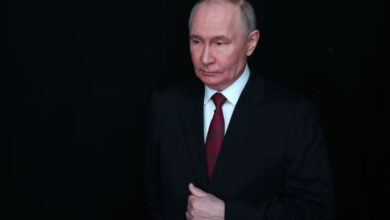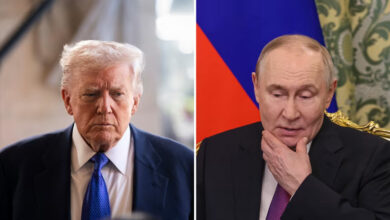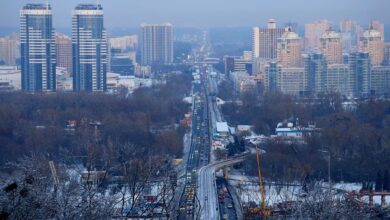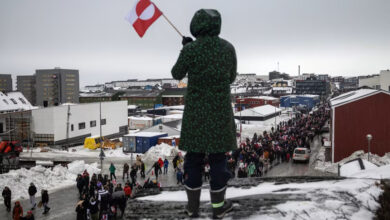In the middle of the crowd on Saturday at Russia's largest opposition protest in years, a big banner bore a simple message: Putin must go.
Anger over Russia's 4 December parliamentary election drew a diverse crowd to a cold embankment in Moscow, where they stood for hours under wet snow to demand a rerun of a vote Putin's foes say was rigged in his ruling United Russia party's favor.
But while organizers did not include the prime minister's resignation in their list of demands, much of the ire was directed at Putin.
For Olga, 38, the vote reconfirmed a conviction that as Putin has gained power over more than a decade as president and then prime minister, the people he governs have become increasingly powerless.
"It's his system," said Olga, a Muscovite who would not give her last name.
Felix, 68, a retired military officer who remembers the hug demonstrations that accompanied the collapse of the Soviet Union 20 years ago, said he wanted Putin out but had no hope that this could be accomplished through elections.
"There is no way to change those in power within the electoral system they have set up, so we need to use other methods," he said, waiting for friends on a subway platform before the rally and ignoring a policeman with a megaphone calling for people to leave the station.
"More radical actions are needed, but the people are not ready for that yet … so for now we will protest," he said. "People must have their say and express their opinion."
Putin on path back to presidency
At the protest, one man did so silently. Standing almost motionless for minutes at a stretch, he held a simple A4 size sheet of paper printed with the slogan: "Mr Putin, my civil rights are not your property."
Most of the protesters were more vocal, mixing shouted calls for a new election with chants of "Down with Putin!" and — one of the standard slogans at much smaller protests held by Kremlin foes before the election — "Russia without Putin!"
That Russia may not come for years, despite nationwide protests whose size — unthinkable even a few weeks ago — prompted one speaker to say that opposition flags would soon fly from the Kremlin's towers.
Recent opinion polls have shown Putin, president for eight years until 2008 and prime minister since then, remains the most popular politician in Russia.
He can count on millions of votes in a March 4 presidential election in which polls indicate he will win a six-year term. If he does, he could run again and potentially rule until 2024.
"Putin won't leave and there won't be any major changes in the country," said Ernst Klyavitsky, 75, a rewired electrician who said he had "never missed a protest" against Communist rule as the Soviet Union was on the verge of collapse.
"But the authorities need to know how angry we are," he said.
They know now and are frightened, said Boris Baranov, 36, analyst and translator for a Moscow engineering firm who waited outside a kiosk near the protest site as his friends stocked up on rolls to fortify them during the four-hour rally.
"Authoritarian governments are more sensitive to public opinion than many think," Baranov said.
On the streets around the protest site at Bolotnaya Square, hundreds of helmeted riot police with truncheons and body armor and trucks full of troops seemed to support his argument.
"You can tell that those in power are worried — they fear this," Baranov said of the protests.




